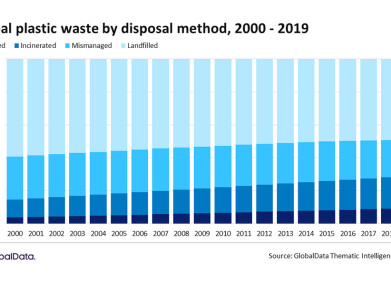Fuel for Thought
Have the North Sea Tax Cuts Worked?
Apr 11 2015
George Osborne revealed a range of tax cuts and investment incentives last week, in an attempt to halt the decline of the floundering North Sea oil industry. The cuts and incentives are worth £1.3bn, and come at a time when plunging oil prices hit a low of $50 a barrel earlier this year.
The chancellor cut production taxes, which sees tax receipts at their lowest level for 40 years. This was in order to try and boost output, whilst at the same time stimulate flagging oil prices.
These tax cuts have forced the Office for Budget Responsibility (OBR) to change the prediction it made in December. It is now advising that North Sea oil and gas could be worth £9.6bn less than it originally estimated, for the next five years.
When announcing the cuts and incentives, Osborne took the opportunity to highlight the importance of a strong union. “It goes without saying that an independent Scotland would never have been able to afford a package of such support, but it’s one of the strengths of our 300-year-old union that not only pools resources, but allows us to face challenges together,” he said in the Commons.
In contrast, Alex Salmond’s government had made predictions of oil receipts valued at between £6.8 billion to £7.9billion in 2016-17. The new forecasts from OBR now show this figure is vastly overrated.
Unsurprisingly, after Osborne’s budget announcement, Scotland’s first minister, Nicola Sturgeon, was particularly quiet about her party’s goal for autonomy from the United Kingdom. However, her deputy John Swinney was more vocal.
The finance secretary for Scotland attacked Osborne and blamed the slump in the oil sector on his economic mismanagement. “Today’s measures are a glaring admission by the chancellor that his policy for the North Sea has been wrong and the poor stewardship by the UK government has had a detrimental impact on our oil and gas sector and the many people who work in the industry,” Swinney said.
From the OBR estimations, the new tax measures could stimulate growth in the oil sector by around 15% by the end of the decade. The OBR state that without Osborne’s tax incentives, by 2019, oil production would reach 27.1 billion tonnes. Thanks to the new incentives, production should reach 30.9 billion tonnes.
However, not everyone is feeling the benefit of the tax breaks. It appears that low oil prices are affecting every aspect of working on the oil rigs. Offshore workers are finding that they are having to work an extra week for the same amount of pay. Work morale is also at its lowest, as oil rig operators try to save money whilst oil prices continue to fall.
In the meantime, whilst Osborne’s tax measures may have put a temporary halt to a flagging industry, there will come a time when tax cuts just won’t cut it.
The government and the industry will then have to decide whether to abandon the remaining oil reserves and instead focus on the more lucrative prospect of dismantling the infrastructure. For more information on this topic, read: Is This The End For North Sea Oil?
Digital Edition
PIN 25.2 Apr/May
May 2024
Safety - Carbon monoxide toxic and flammable gas detection Analytical Instrumentation - Density: A fundamental parameter at critical stages within the petroleum sector - Advancements and...
View all digital editions
Events
Jul 10 2024 Birmingham, UK
Thailand Oil & Gas Roadshow 2024
Jul 11 2024 Rayong, Thailand
Jul 20 2024 Denver, CO, USA
Jul 21 2024 Cape Town, South Africa
Jul 24 2024 Bogata, Colombia


















